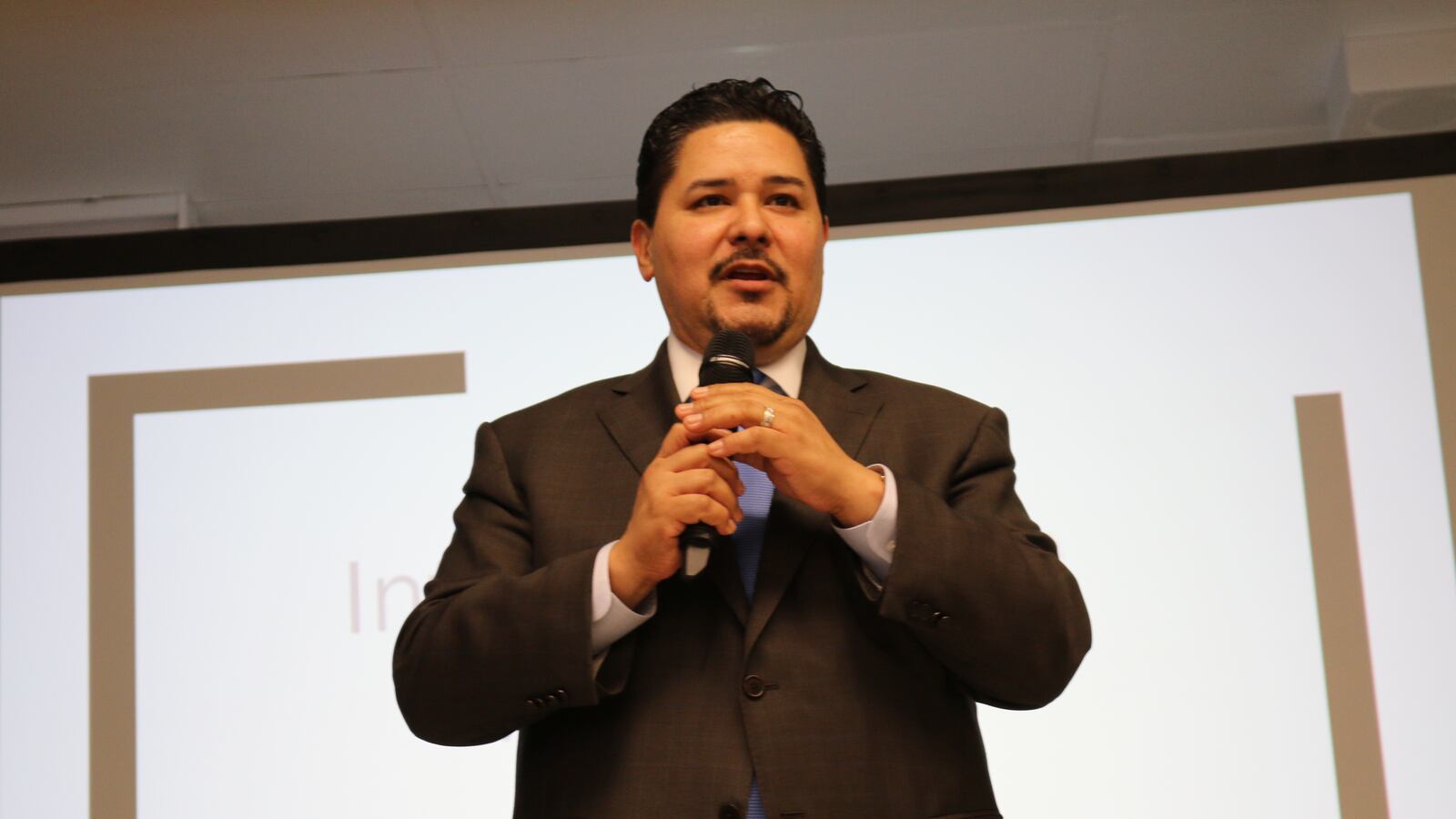When state officials announced a new set of struggling schools in January, they insisted that high rates of students boycotting state tests could not be the only reason a school could be slapped with a low-performing label.
But Schools Chancellor Richard Carranza is now publicly challenging the state’s narrative, arguing that at least two of the 124 city schools labeled as struggling were identified specifically because students opted out of state exams.
“When we previewed that list and saw that there were several schools that were designated because of their opt out numbers – there was no other category, no other metric except their opt out numbers — we actually appealed for those schools, we appealed on their behalf and our appeal was denied,” Carranza said at last week’s Panel for Educational Policy meeting.
Carranza’s comments are in tension with the state’s assertion that its new accountability system, implemented for the first time this year, does not penalize schools solely because students boycotted the exams. And his remarks bolster the claims of testing critics, who have been suspicious that schools were placed on the list because students sat out the tests and have successfully pushed the state education department to minimize punishments for boycotting the tests.
“We feel strongly that the tests are not an accurate assessment,” said Kaliris Salas, a parent at Central Park East I, one of the schools on the state’s list, a designation the city appealed. “We stand by our decisions.”
Although one of the measures used to rate schools does take test refusals into account, state officials maintain that schools were not placed on the struggling schools list solely because of their opt-out rates.
The city’s Department of Education disagreed, and appealed on behalf of two schools that were identified among the lowest performing in the state and which have high opt-out rates: Central Park East I, where 80 percent of students sat out at least one test, and P.S. 15 Patrick F Daly, where 26 percent of students sat out a test. Officials did not provide copies of the city’s appeals or the state education department’s response to them.
It’s not clear whether those two schools would have been identified as struggling if their opt-out rates had been lower. In a letter to parents, Central Park East principal Gabriel Feldberg argued that the school’s opt-out rate had torpedoed the school on the state’s rankings, noting that the schools reading scores among students who took the exams beat the city average.
“Students who don’t take the exam are counted as scoring at the lowest level,” he wrote.
State officials disputed that characterization. “It is inaccurate to say that the school was identified due to the inclusion of non-tested students,” a spokesperson wrote in an email.
Still, there are not steep consequences of being considered a “Comprehensive Support and Improvement” school, the official title for the state’s lowest-performing schools. The schools are required to craft improvement plans with “evidence based” approaches but will not be required to fire staff or principals.
In theory, schools could be subject to closure or takeover if they do not improve after five years, though state officials have been reluctant to take harsh action. Schools with high opt-out rates are also required to come up with plans to boost student participation in the tests.
“I know the state does not have a process for closing or taking over schools within the first few years of CSI status,” Feldberg wrote in his letter to parents. “I’m not at all worried about that right now.”
Ian Rosenblum, executive director of The Education Trust-NY, noted the state is required by federal law to include test refusals into its accountability system and struck a “reasonable balance” between the concerns of the opt-out movement and the need to create an incentive against keeping certain students from taking the tests at all.
The federal law governing the state’s accountability system “is a civil rights law,” Rosenblum wrote in an email. “And that is why there are protections in place to prevent schools from systemically excluding historically underserved groups of students from state assessments.”


